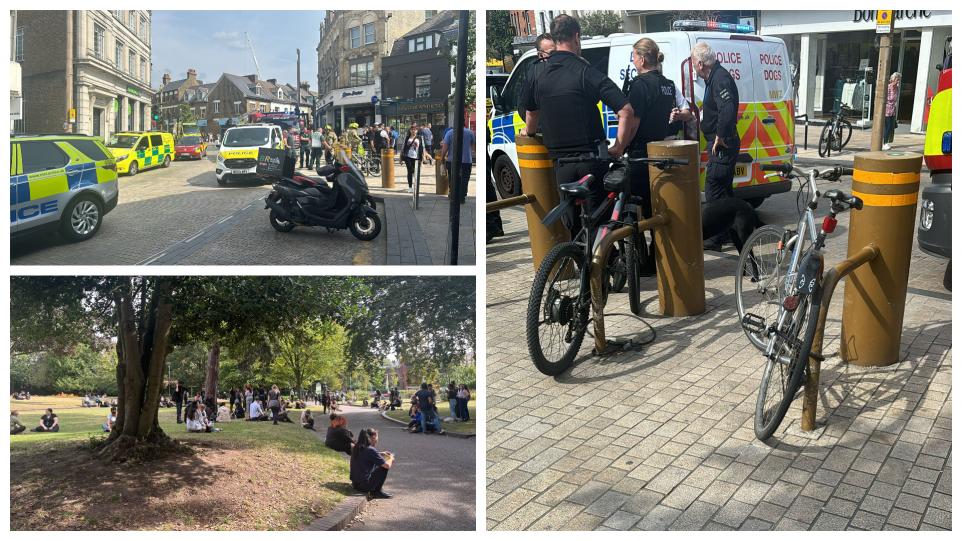 Once a promising destination for London day-trippers and tourists seeking suburban tranquility, Bromley is facing a tourism decline that has left local businesses and officials concerned. In recent years, the borough, known for its mix of heritage sites and green spaces, has seen a noticeable drop in visitor numbers. The primary cause: a lack of adequate amenities and services that tourists increasingly expect.
Once a promising destination for London day-trippers and tourists seeking suburban tranquility, Bromley is facing a tourism decline that has left local businesses and officials concerned. In recent years, the borough, known for its mix of heritage sites and green spaces, has seen a noticeable drop in visitor numbers. The primary cause: a lack of adequate amenities and services that tourists increasingly expect.
Local businesses have reported a sharp decrease in foot traffic, especially during peak tourist seasons. Small shops, cafés, and family-owned restaurants that once thrived on the steady stream of visitors are now struggling to stay afloat. Many attribute this to the fact that **Bromley has failed to invest in essential tourism infrastructure**, leaving it unable to compete with nearby boroughs or even the heart of London itself.
For a long time, Bromley had marketed itself as a peaceful retreat from the busy streets of central London, offering attractions such as the **Churchill Theatre**, the **Bromley Museum**, and various historic landmarks. It was also a gateway to nearby **Down House**, the home of Charles Darwin, a major draw for history enthusiasts. However, visitors have begun to report growing dissatisfaction with what Bromley has to offer. A lack of public toilets, inconsistent signage for key tourist attractions, and few family-friendly facilities have left many disillusioned.
Clare Andrews, a visitor from Yorkshire who recently spent a weekend in Bromley, shared her frustrations:
*”We came for a family trip to see Down House and explore the area, but there were hardly any decent cafés or restaurants open when we arrived. The whole place felt a bit lifeless. We even struggled to find somewhere to park without paying a fortune.”*
In fact, parking is another sore point for both visitors and residents alike. **Expensive and limited parking options** have driven away many would-be tourists, especially those traveling by car. Unlike neighboring boroughs, Bromley has been slow to adopt cheaper parking solutions or initiatives that promote sustainable transport options for visitors, like well-connected cycling paths or electric vehicle charging stations.
Further compounding the issue is the **poor state of public transport**. Many visitors rely on buses and trains to reach Bromley, but frequent delays and cancellations on the lines that connect Bromley to central London have become an obstacle. For many, what should be a simple day trip often turns into a frustrating experience.
Local business owners are particularly disheartened. Richard Lawson, who runs a small café in Bromley’s town centre, explained:
*”We used to see a good number of tourists, especially in the summer. But now, it feels like the town is being neglected. If the council doesn’t take action soon, I don’t see how we can survive.”*
The **lack of investment in cultural events and festivals** has also been a factor in Bromley’s tourism woes. Other boroughs have embraced the idea of cultural programming to boost tourism, hosting street festivals, music events, and markets to attract visitors. Bromley, in contrast, has been slow to establish regular events that could help reinvigorate the local economy and draw tourists back to the area.
Local government officials, however, insist that they are aware of the problem and are working on solutions. Bromley Council spokesperson Alison Reed stated:
*”We recognize the importance of tourism to our local economy, and we are currently reviewing our tourism strategy. We have plans in the pipeline to improve amenities and increase our support for local businesses, as well as initiatives to modernize our transport infrastructure.”*
Despite these assurances, many fear that Bromley’s **reputation as a tourist destination** has already taken too great a hit. For now, it appears that the borough’s potential as a tourism hotspot remains unfulfilled, as visitors continue to be deterred by its lack of essential services and infrastructure. Without swift and decisive action, Bromley risks further tarnishing its image and losing out on valuable tourism revenue.
